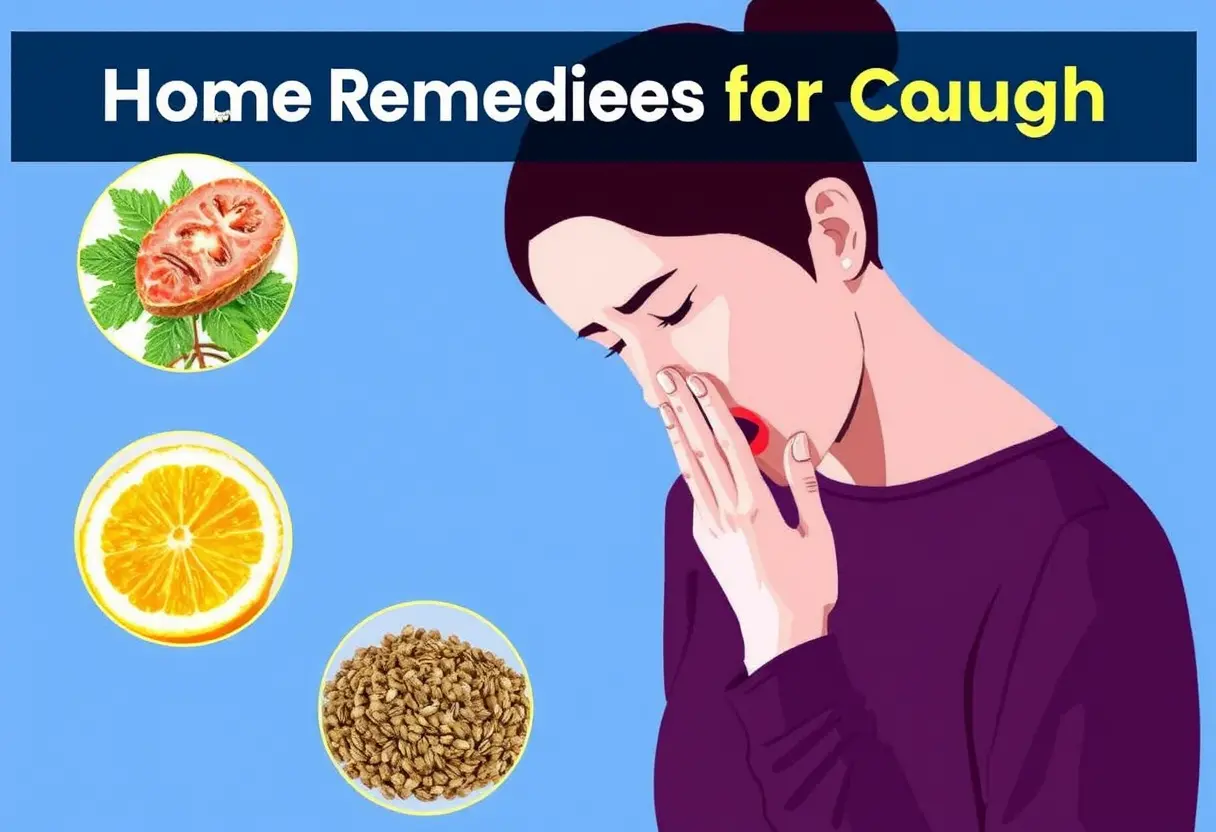Coughing is a natural reflex to clear irritants from the throat and respiratory tract. While occasional coughing is normal, persistent coughing can be uncomfortable. Fortunately, home remedies can provide effective relief. Here are some tried-and-tested solutions to soothe your throat and ease coughing naturally.

1. Honey
Honey is a well-known remedy for soothing a sore throat and suppressing coughs.
- How to Use: Mix one tablespoon of honey with warm water or herbal tea. Drink this mixture 2-3 times a day. For added benefits, combine honey with lemon juice for a vitamin C boost.
2. Ginger
Ginger has anti-inflammatory properties that can relax the muscles in the respiratory tract and reduce coughing.
- How to Use: Prepare ginger tea by boiling slices of fresh ginger in water for 10 minutes. Add honey or lemon for flavor and enhanced benefits.
3. Turmeric Milk
Turmeric is a powerful antioxidant and has anti-inflammatory properties that can help with respiratory issues.
- How to Use: Mix half a teaspoon of turmeric powder into a cup of warm milk. Drink this once a day before bedtime.
4. Steam Inhalation
Steam helps loosen mucus and alleviate coughing caused by congestion.
- How to Use: Boil water and pour it into a bowl. Lean over the bowl, cover your head with a towel, and inhale the steam for 10 minutes. Adding essential oils like eucalyptus or peppermint can enhance the effect.
5. Saltwater Gargle
Saltwater gargling can reduce throat irritation and wash away mucus.
- How to Use: Mix half a teaspoon of salt in a glass of warm water. Gargle with the solution for 30 seconds and spit it out. Repeat 2-3 times a day.
6. Licorice Root Tea
Licorice root acts as a natural expectorant and soothes the throat.
- How to Use: Boil one teaspoon of dried licorice root in a cup of water for 10 minutes. Strain and drink this tea twice a day.
7. Thyme Tea
Thyme has antispasmodic properties that can reduce coughing.
- How to Use: Steep two teaspoons of dried thyme in a cup of boiling water for 10 minutes. Strain and drink the tea.
8. Pineapple Juice
Pineapple contains bromelain, an enzyme with anti-inflammatory and mucus-thinning properties.
- How to Use: Drink fresh pineapple juice or combine it with honey for additional benefits.
9. Peppermint Tea or Oil
Peppermint contains menthol, which soothes the throat and acts as a decongestant.
- How to Use: Drink peppermint tea or add a few drops of peppermint oil to hot water for steam inhalation.
10. Marshmallow Root Tea
Marshmallow root creates a soothing layer on the throat, reducing irritation.
- How to Use: Steep one tablespoon of dried marshmallow root in hot water for 15 minutes. Strain and sip slowly.
11. Hydration
Staying hydrated is crucial for keeping the throat moist and thinning mucus.
- How to Use: Drink plenty of water, herbal teas, or broths throughout the day. Avoid caffeine and alcohol as they can dehydrate you.
12. Propped-Up Sleeping Position
Elevating your head while sleeping can prevent mucus from pooling in the throat, reducing nighttime coughing.
How to Use: Use extra pillows to prop yourself up when lying down.

When to See a Doctor
While home remedies are effective for mild to moderate coughing, consult a doctor if:
Your cough lasts longer than three weeks.
You experience chest pain, shortness of breath, or wheezing.
You cough up blood or greenish-yellow mucus.

Home remedies for cough provide a natural and effective way to find relief. Incorporating these methods into your routine can help soothe your throat and alleviate symptoms. However, always monitor your condition and seek professional advice if symptoms persist or worsen.

